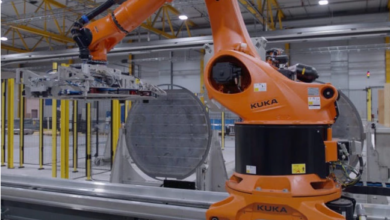Raven SR agrees to supply sustainable aviation fuel to All Nippon Airways and Japan Airlines

Raven SR Inc., a renewable fuels company, today announced it has signed a memorandum of understanding (MOU) to supply sustainable aviation fuel (SAF) to All Nippon Airways (ANA) for major global routes.
The MOU provides for an initial 50,000 tons of SAF supply in the first year, 2025, with annual incremental increases to 200,000 tons for year 10. The supply will be produced by Raven SR at facilities planned for major global markets outside Japan to serve specific international routes of ANA.
Raven SR Inc. (Raven SR), a renewable fuels company, today announced it has sign a memorandum of understanding (MOU) to supply sustainable aviation fuel (SAF) to Japan Airlines (JAL) for major global routes.
The MOU provides for an initial 50,000 tons of SAF supply in the first year, 2025, with annual incremental increases to 200,000 tons for year 10. The supply will be produced by Raven SR at facilities planned for major global markets outside Japan to serve specific international routes of JAL.
“We are grateful our strategic partner Itochu introduced us to ANA to initiate this landmark agreement for long-term SAF supplies that will foster growth for Raven SR on a global basis and help ANA with its carbon reduction commitments,” said Matt Murdock, CEO of Raven SR. “We expect that our agreement with ANA to supply SAF in strategic markets globally will enable buying local fuel produced from local waste. We see growing interest in such efficiency and circularity in renewable fuel distribution for aviation and other transportation sectors.”
ITOCHU is one of several strategic investors in privately held Raven SR, and the two companies maintain a strong partnership, including plans for commercial production and sales of renewable fuels worldwide.
“As part of our climate transition strategies, ANA is dedicated to being an industry leader with our environmental commitments. This announcement with ITOCHU and Raven SR will be of great importance and support our mid- and long-term carbon reduction goals,” said Hideo Miyake, Executive Vice President at ANA overseeing Procurement. “We look forward to collaboratively working together on this important business imperative of being environmentally conscious and developing local solutions that are beneficial to reducing our carbon footprint.”
The Japanese airline industry is required by the country’s General Assembly of the International Civil Aviation Organization (ICAO) to reach a goal of achieving net-zero CO2 emissions from aircraft by 2050. Starting in 2024, Japanese airlines must reduce or offset 15% of emissions from 2019 levels.
The Raven SR technology is a non-combustion thermal, chemical reductive process that converts organic waste and landfill gas to hydrogen and Fischer-Tropsch synthetic fuels.
